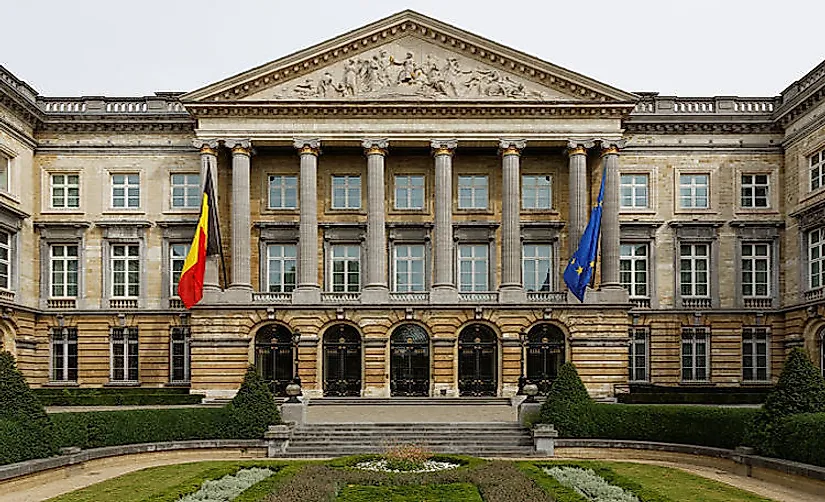What Type Of Government Does Belgium Have?

The Kingdom of Belgium is a parliamentary democracy under a constitutional monarchy. The country gained its independence in 1830 when the provisional government became independent from the Netherlands. King Leopold I took the leadership on July 21, 1831. This is why, ever since independence, July 21 has been a national holiday known as Ascension Day in commemoration of King Leopold I's coming to power. The constitution of Belgium was drafted on November 25, 1830, ratified on February 7, 1831, and became effective on July 26, 1831.
The constitution of the country was revised in 1993 allowing for the creation of the federal state. Since then several amendments have been made, and the last amendment was completed in 2014. The federal government exercises the executive power in the kingdom of Belgium and it is made up of ministers and secretaries of state drawn from political parties that formed the governing coalition. There are three levels of government in Belgium: the federal, regional, and linguistic community division with each having different responsibilities
The Executive Branch Of The Government Of Belgium
The chief of state in the country is the King. The king represents the Belgian identity, and he appoints the Prime Minister by taking the Parliament's consent. The incumbent is King Philippe who took the throne on July 21, 2013, and the heir apparent is Princess Elizabeth, the daughter of the monarch. The head of the government is the Prime Minister who is the head of the government who is in charge of appointing the cabinet and the direction of the executive departments in of government. The current Prime Minister is Charles Michel who took office on October 11, 2014. The cabinet is made up of the council of ministers, and they are appointed by the monarch. The monarchy is both hereditary and constitutional, and after the parliamentary elections the king appoints the leader of the coalition as the Prime Minister and must be approved by the parliament.
The Legislative Branch Of The Government Of Belgium
The legislature of the Kingdom of Belgium is a bicameral parliamentary system made up of the Senate and the chamber of representatives. The Senate has 71 seats composed of 40 members elected directly by proportional representation vote and 31 indirectly elected by community parliaments, and they serve for a four-year term. The chamber of representatives has 150 seats made up of members elected directly by proportional representation vote who serve for four years. The last elections in the country were held on May 23, 2014, and the next will take place in May 2019 and will coincide with the elections in the European Union.
The Judiciary
The highest court is the country is the constitutional court which has twelve judges; six are French speaking, and six are Dutch speaking. There is also the supreme court of justice which is organized into three chambers, and each chamber is a French division and a Dutch division, each having a chairperson and five or six member judges. The monarch appoints the judges of the constitutional court from candidates presented by the parliament. The judges are appointed for life and a mandatory retirement age of 70 years. The monarch also appoints the judges of the Supreme Court from the candidates presented by the High Council of Justice, an independent body of judicial and non-judicial members. The judges are also appointed for life. There are also subordinate courts which include Courts of Appeal, regional courts, specialized courts which deal with commercial, administrative, audit, and labor issues. There are also magistrate's courts and justices of the peace.
How The Government Works?
Belgium has three regions including the Brussels capital region, the Flemish region, and the Walloon region. As a result of the 1993 constitutional amendment it created the federal, regional, and linguistic community. In 2012 the sixth state reform transferred more competencies from the federal state to the regions and linguistic communities. In the country, there are Flemish political parties, Francophone political parties, political pressure groups, and several other associations representing different professionals and interest groups. The civil law system in Belgium is fashioned on the French civil code, and the Belgian law is continuously revised and modified to conform to the legislative requirements mandated by the judicial review of the European Union.











